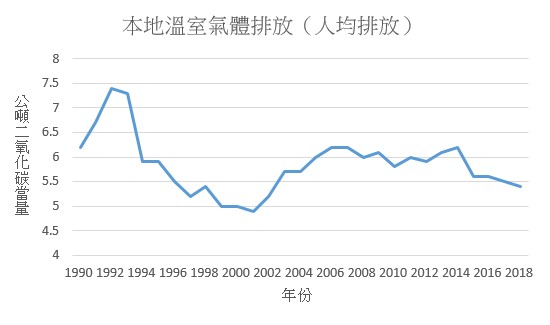Joint Green Groups Recommendation For The Updated Climate Action Plan
 28 Sep 2021
28 Sep 2021
- Category
- Keywords
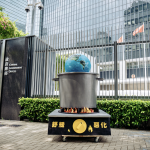
(28 Sep 2021 Press Release) The first part of the 6th assessment report released by IPCC in August 2021 indicates that climate change is now an—if not the most—existential threat to humanity. The impacts are no longer expected to just affect the next generation. The impacts are being manifested now. The IPCC, despiteits inherently conservative nature states, “Global warming of 1.5°C and 2°C will be exceeded during the 21st century unless deep reductions in carbon dioxide (CO2) and other greenhouse gas emissions occur in the coming decades… With further global warming, every region is projected to increasingly experience concurrent and multiple changes in climatic impact-drivers. Changes in several climatic impact-drivers would be more widespread at 2°C compared to 1.5°C global warming”. We are already seeing the enormous human and economic costs with the storms, droughts, and heat creating floods and fires in all continents.
Hong Kong is not exempted. The Pearl River Delta is considered to be an area that will be severely affected by typhoons and consequent storm-surges. Hong Kong will suffer more frequent heat extremes and heavy precipitation. Flooding will increase with frequent storm surges and heavy rainfall with potentially devastating socio-economic consequences. In fact, this year, the Hong Kong Observatory recorded the city’s hottest May, with 12 ‘very hot’ days and 14 ‘hot’ nights. Sub-divided residents in low-income areas of the city suffer the most. Energy poverty (relative spending on energy) is also prominent among low-income groups.
In October 2020, the HKSAR Chief Executive stated that Hong Kong should be carbon neutral by 2050 and pledged to update the Climate Action Plan by the middle of this year. We hope the Climate Action Plan yet to be published will set out a comprehensive roadmap to achieve carbon neutrality before 2050.
We appreciate the Government’s commitment to decarbonising Hong Kong’s economy while at the same time tackling many other social challenges such as provision of adequate housing. But in doing so, we should also ensure we build climate resilience in our city, infrastructure, and economy to ensure people’s well-being and safety.
We note that progress in reducing the average energy consumption of commercial buildings is slow and this will hinder reaching targets. The number of private cars in Hong Kong increased by a staggering 40% between 2010 and 2019. These kinds of trajectories are not favorable for the city
moving toward carbon neutrality.
We do, however, believe that Hong Kong, as a developed city with little exposure to hard-to-decarbonise sectors such as industry and agriculture should lead in achieving net-zero by 2050.
Yet, to achieve decarbonisation, Hong Kong needs specific and comprehensive policies coupled with regular progress reviews.
This document sets out our suggestions for a comprehensive, yet feasible, long-term Climate Action Plan to contribute towards the goal of carbon neutrality for Hong Kong before 2050 as a contribution to the Paris Agreement’s target of limiting global warming to 1.5°C above pre-industrial levels. Specifically, we recommend the following principles to the Chief Executive for her 2021/22 Policy Address as fundamental components of such a holistic climate policy:
1. HKSAR Government to show strong leadership and determination to limit global temperatures to 1.5°C above pre-industrial levels through setting a legally binding, science-based climate target by 2022.
The Chief Executive must lead all government departments, public bodies, and agencies to develop measurable, actionable, and time-bound objectives to limit global temperatures to 1.5°C above pre-industrial levels with a science-based approach. Targets should be reviewed and, where needed, revalidated every 5 years. Hong Kong should set up a central procurement policy aligned to science-based targets under the new decarbonisation legal framework.
2. Meet at least 10% renewable energy (RE) target for Hong Kong by 2030.
Diversify the renewable energy portfolio, and promote solar photovoltaic (PV) technology by placing solar PV systems on all buildings, mobility networks, and open spaces, such as footbridges, highway, highway noise barriers and reservoirs. The Government should leverage solar energy innovations such as floating solar PV systems. Hong Kong should lead the Greater Bay Area to decarbonise the yet-to-address and hard-to-abate emissions of the aviation and the heavy road freight sector to unleash the potential of biofuel and to foster a circular economy.
3. Realise a 30% energy saving improvement by 2030 and net zero carbon buildings by
2050.
Adding an ‘Operating Energy Ratings’ (tools) to assess the actual performance of buildings and to provide the corresponding data for energy efficiency measures.
The tools should be able to provide performance-based ratings to address operation and design gap issues and aim for a pathway to carbon neutrality. The government should adopt a standard metric, “Design Operating Energy (per sq m)”, for the design hours of operation and design in-building computer energy load, and to reissue the rating every 12 months. The standard metric will be a key indicator that can be compared with (a) other similar buildings; and (b) the building’s Design Operation Energy, to fast-track the building sector’s decarbonisation.
The tools will also enable building owners to leverage green and sustainable finance to address pain points, for example: lack of transparency on: (i) whether a building is efficient or an ‘energy hog’, and (ii) whether a building achieves its design operating efficiency. Such information would motivate reduced energy consumption, for existing buildings, for example through retro-commissioning, and incentivising green designs in new buildings; targets should apply to both existing and new buildings.
4. Introduce a decarbonisation financing scheme and a carbon tax by 2025.
Replicate energy efficiency and renewable energy projects within government properties, open spaces, and privately-owned buildings by setting up a decarbonisation financing scheme. Implement a progressive carbon charging system by 2025. The system should be tested within the context of high carbon products, electricity bills, and aviation emissions. Charges received will be allocated to the funding pool of the decarbonisation financing scheme. Progressive pricing should be designed to reduce the burden of underprivileged during the transition. Showcase the economic cost and benefit for decarbonisation practice to incentivise the business sector and individuals to further decarbonise. A mandatory cap and trade system with no international offsets should be developed. A
cap and trade system has already been in place in the European Union for over a decade. Hong Kong should catch up with our Asian neighbours like mainland China, South Korea, and Toyko, which already have a relatively comprehensive system.
5. Rethink urban planning and transform Hong Kong into a people-centric city.
Better town planning should be adopted to improve walkability, to provide pedestrians with more comfortable, enjoyable places to walk, and to access public transport networks. A quota for private car licenses, electronic road pricing and a, “Zero Emission Zone” should be introduced to help our city ‘shift’ to less carbon emissions-intensive transport modes; a timeline should be set for decarbonising all vehicles including commercial vehicles.
6. Build up Hong Kong’s climate resilience through Nature-based Solutions
To strengthen Hong Kong’s climate resilience, the Government must allocate resources on climate adaptation and resilience building to survive more severe and frequent extreme events. The government should protect natural habitats and make use of the ecosystem services provided by nature to enhance our city’s climate resilience. Mangroves, for example, are an effective carbon sink and can act as a natural flood barrier during extreme weather events. Intact ecosystems are more resilient to natural disasters and are better nature-based solutions for resilience-building. Climate change and biodiversity collapse are the two greatest threats we face today. Therefore, these dual crises are intertwined and must be addressed jointly to help humanity survive the climate crisis.
Initiators (in no particular order):
The Green Earth
350 Hong Kong
WWF Hong Kong
CarbonCare InnoLab
Civic Exchange
Greenpeace
Green Sense
Co-signatories (in no particular order):
The Nature Conservancy
World New Economy Council
Ecobus
The Conservancy Association
Hong Kong Dolphin Conservation Society
Clean Air Network
Designing Hong Kong
Green Power
Greeners Action
Green Council
ADM Capital Foundation
HongKong2050isNow
Redress
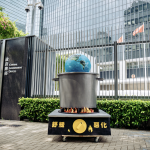

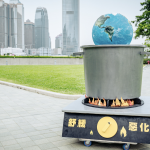
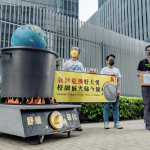


 Green Talks
Green Talks 

 Back
Back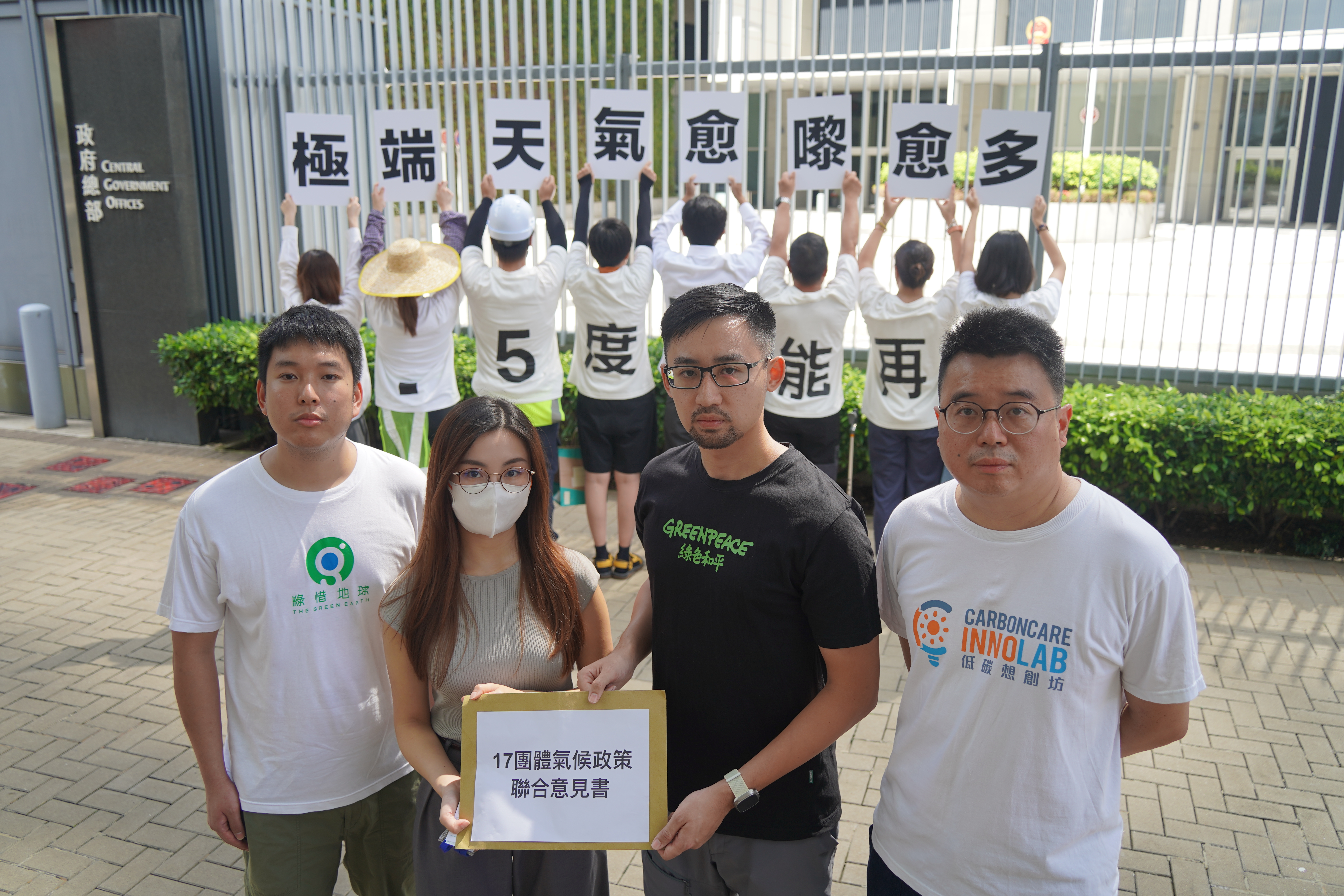
 10 Sep 2025
10 Sep 2025

